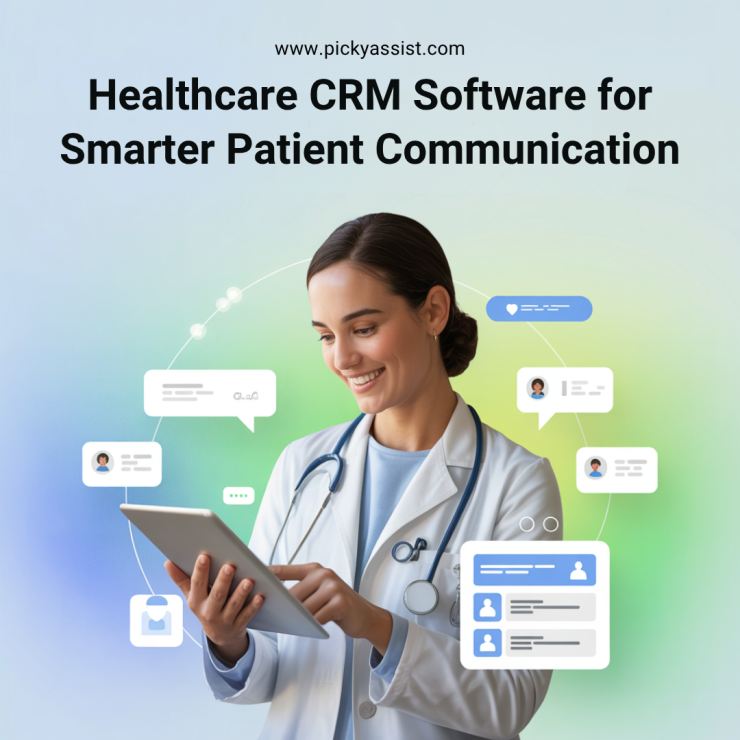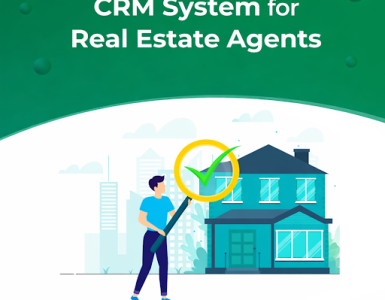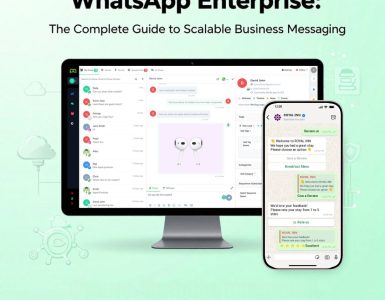The way patients interact with healthcare providers has changed dramatically in the past decade. Today’s patients expect timely responses, personalized care, and seamless digital experiences, just like they do from any modern brand. To meet these growing expectations, healthcare organizations are turning to healthcare CRM software, a solution that bridges the gap between medical expertise and patient engagement.
Unlike traditional systems that only store data, healthcare CRM system transforms how hospitals, clinics, and medical practices communicate with patients. It gives providers a complete, 360-degree view of every interaction, whether it’s appointment scheduling, follow-up care, or feedback management, so that each touchpoint feels personal and proactive.
As digital health adoption accelerates, more than 70% of healthcare organizations now see patient relationship management as a top priority. This shift isn’t just about convenience, it’s about building trust, improving outcomes, and ensuring that no patient feels overlooked in an increasingly connected ecosystem.
Understanding Healthcare CRM Software
Healthcare CRM solution is a specialized system designed to manage and analyze patient interactions and data throughout the patient lifecycle. It integrates various functionalities such as appointment scheduling, patient communication, data management, and follow-up care, all while ensuring compliance with healthcare regulations like HIPAA.
Unlike traditional CRM systems, which focus on sales and marketing, healthcare CRM solution is tailored to meet the unique needs of healthcare providers, facilitating personalized patient care and efficient administrative processes.
Benefits of Using Healthcare CRM Software
1. Enhanced Patient Relationships
By centralizing patient information, healthcare CRM software enables providers to offer personalized communication and tailored experiences. This fosters stronger patient-provider relationships, leading to improved patient satisfaction and loyalty.
2. Streamlined Communication
Integrating communication tools within the CRM system allows for seamless interaction between healthcare teams and patients. This integration reduces communication barriers, minimizes errors, and ensures timely responses to patient inquiries.
3. Effective Data Management
Healthcare CRM software centralizes patient data, ensuring easy access to accurate and up-to-date information. This centralized approach empowers healthcare providers to make informed decisions, enhancing the quality of care delivered.
4. Increased Efficiency
Automation of routine tasks such as appointment reminders, follow-up notifications, and patient intake processes reduces administrative burdens. This leads to improved operational efficiency, allowing healthcare providers to focus more on patient care.
Key Features of Healthcare CRM Software
- Patient Data Management: Stores comprehensive patient profiles, including medical history, treatment plans, and communication logs.
- Appointment Scheduling: Facilitates easy scheduling, rescheduling, and cancellation of appointments.
- Communication Tools: Offers integrated messaging platforms for secure communication between patients and providers.
- Task Automation: Automates administrative tasks such as reminders, follow-ups, and billing processes.
- Analytics and Reporting: Provides insights into patient behavior, treatment outcomes, and operational performance.
Examples of Healthcare CRM Software
Several healthcare CRM software solutions are available, each offering unique features to cater to different healthcare needs:
- Picky Assist CRM: A specialized CRM system that integrates with WhatsApp Business API, offering features like smart replies, automated follow-ups, and a unified inbox for seamless communication.
- Salesforce Health Cloud: A comprehensive platform that provides a 360-degree view of patient profiles, facilitating personalized care and improved patient engagement.
- Microsoft Dynamics 365 Healthcare: Integrates with Microsoft tools to offer seamless communication and data management capabilities.
- Zoho CRM for Healthcare: Offers customizable solutions for appointment scheduling, patient communication, and data analytics.
- HubSpot CRM for Healthcare: Provides tools for lead management, patient communication, and marketing automation.
- Pega Healthcare CRM: Focuses on case management and workflow automation to enhance operational efficiency.
- Oracle Health: Delivers comprehensive solutions for patient engagement and data management.
How Picky Assist CRM Enhances Healthcare Communication?
Picky Assist CRM stands out by offering a unified communication platform that integrates seamlessly with WhatsApp and other messaging platforms. This integration allows healthcare providers to engage with patients through their preferred communication channels, ensuring timely and personalized interactions.
The platform’s automation capabilities enable healthcare providers to send automatic follow-ups based on events and triggers, reducing manual workload and ensuring consistent patient engagement. Additionally, Picky Assist CRM’s Teambox feature unites customer and team communications through a unified inbox, streamlining collaboration and improving response
Picky Assist CRM ensures compliance with international standards for quality management and information security, providing healthcare providers with a reliable and secure solution for patient communication.
Conclusion
Healthcare CRM software plays a crucial role in modern patient communication by centralizing patient data, automating administrative tasks, and facilitating seamless communication between healthcare providers and patients. Implementing a robust healthcare CRM system, such as Picky Assist CRM, can lead to enhanced patient relationships, improved operational efficiency, and better overall patient care.
As the healthcare industry continues to evolve, embracing technology solutions like healthcare CRM software will be essential in meeting the growing demands for personalized and efficient patient communication.
FAQs on Healthcare CRM Software
1. What is healthcare CRM software?
Healthcare CRM software is a system designed to manage and analyze patient interactions and data throughout the patient lifecycle, facilitating personalized care and efficient administrative processes.
2. How does healthcare CRM software improve patient communication?
By centralizing patient information and integrating communication tools, healthcare CRM software enables timely and personalized interactions between healthcare providers and patients, enhancing overall communication.
3. What are some examples of healthcare CRM software?
Examples include Salesforce Health Cloud, Microsoft Dynamics 365 Healthcare, Zoho CRM for Healthcare, HubSpot CRM for Healthcare, Pega Healthcare CRM, Oracle Health, and Picky Assist CRM.
4. How can Picky Assist CRM benefit healthcare providers?
Picky Assist CRM offers a unified communication platform, automation capabilities, and compliance with international standards, enhancing patient engagement and operational efficiency for healthcare providers.
5. Is Picky Assist CRM suitable for all healthcare providers?
Yes, Picky Assist CRM is designed to cater to various healthcare providers, offering customizable solutions to meet diverse communication needs.







Add comment